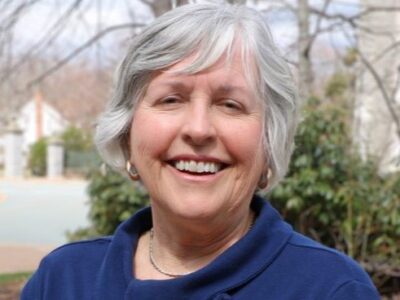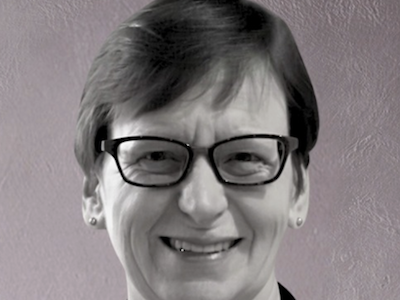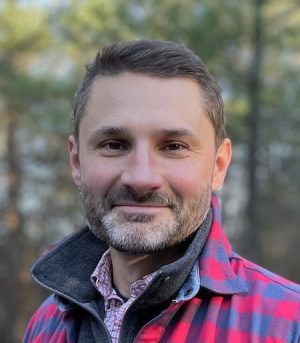 Mischa Kaplan is the Executive Director of Culture and Enabling Services at Scouts Canada, leading the strategic direction and operational management of business and corporate services, including HR, Finance & Accounting, Information Technology, Diversity/Inclusion and Reconciliation, Safe Scouting, Risk Management, Insurance, Legal and Business Services. He’s also a part-time Professor of Management in the School of Business at Algonquin College of Applied Arts and Technology, in Ottawa. He spoke with PANL Perspectives about Scouts Canada’s recent apology to Indigenous people.
Mischa Kaplan is the Executive Director of Culture and Enabling Services at Scouts Canada, leading the strategic direction and operational management of business and corporate services, including HR, Finance & Accounting, Information Technology, Diversity/Inclusion and Reconciliation, Safe Scouting, Risk Management, Insurance, Legal and Business Services. He’s also a part-time Professor of Management in the School of Business at Algonquin College of Applied Arts and Technology, in Ottawa. He spoke with PANL Perspectives about Scouts Canada’s recent apology to Indigenous people.
Question: Scouts Canada recently delivered a series of apologies across the country. Why?
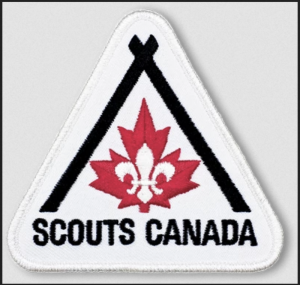
“It is now clear, more than ever, that the Scouting movement in Canada must take responsibility for some painful and ugly truths about our history. In particular, we wish to publicly acknowledge that our movement has played what we believe to be a direct and, at times, complicit role in the eradication of Indigenous cultures within the geographic boundaries of what we now call Canada.” –Part of Scouts Canada’s apology to Indigenous peoples.
Mischa Kaplan: This project has been in the works for several years, part of a larger project about Reconciliation. As part of Canada’s residential school system, Scouting was often used as the program of choice to strip First Nations, Métis and Inuit youth of their cultural identities. In order for Scouts Canada to be a place of belonging for all youth and volunteers, we know that we need to take responsibility for our mistakes in order to become an inclusive Scouting community. We’re also aware as an organization that we have engaged in a long history of appropriating Indigenous symbols, words, names and other cultural artifacts. And in many cases, this process of appropriation was done without the input or support of Indigenous peoples.
Part of the project involved putting together an Indigenous advisory council and working with other advisory groups, including Girl Guides Canada, which offered its own apology, in 2021. One of the things we heard from various Indigenous advisors was that before we could start the work of Reconciliation, we were told that we had to take accountability for historical harms related to our role in residential and day schools.
We set out a three-stage process towards this work:
- developing self-awareness, and learning about our past;
- owning our history; and
- building a new relationship between Indigenous Peoples and the Scouting movement in Canada.
The “owning our history” stage was very much about delivering our apology. There were regional gatherings in BC, Winnipeg and Halifax, and a national apology in Ottawa. In BC, the gathering took place on land, one of our camps, that we’re in the process of giving back, through the BC government, to the First Nation that traditionally owned that land.
Q: Can you explain more about the history regarding Scouting and residential schools?
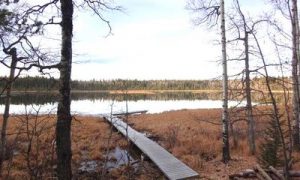 Kaplan: A big part of this journey has been learning about our past. We made sure to fully understand our past, so that we could take accountability for that. We worked with historians to review Scouting records and archival sources to find out how Scouting was complicit with the residential school system, especially in northern communities. Our research made clear that the Scouting program was used as an extra-curricular activity to help “teach” Indigenous youth “about the land” that their families had lived on since time immemorial. Additionally, our research uncovered the fact that the Scouting movement had been directly involved in the attempted erasure of Indigenous culture, with the ultimate goal of assimilating Indigenous youth into a deeply colonialist version of “Canadian” culture.
Kaplan: A big part of this journey has been learning about our past. We made sure to fully understand our past, so that we could take accountability for that. We worked with historians to review Scouting records and archival sources to find out how Scouting was complicit with the residential school system, especially in northern communities. Our research made clear that the Scouting program was used as an extra-curricular activity to help “teach” Indigenous youth “about the land” that their families had lived on since time immemorial. Additionally, our research uncovered the fact that the Scouting movement had been directly involved in the attempted erasure of Indigenous culture, with the ultimate goal of assimilating Indigenous youth into a deeply colonialist version of “Canadian” culture.
Q: What were a few reactions to the apology?
Kaplan: The most significant reaction we had was from the Aboriginal Peoples Television Network (APTN News), who covered one of the gatherings and ran a news story. In general terms, I don’t think there was a lot of attention given to it, which was fine. Our intention was to connect with these various communities and to signal that we’re taking accountability, as opposed to putting ourselves on some sort of pedestal to say, “Look at us. We’re apologizing.” The next step is to do the work of reconciling with Indigenous communities in Canada.
Q: What are next steps and actions after the apology?
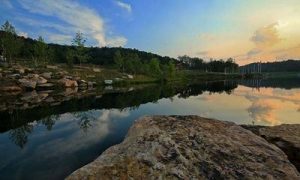 Kaplan: With the apologies having taken place, we’re transitioning into the “building a new relationship” phase with First Nations, Metis and Indigenous communities. This means co-creating a way forward, as equal partners in discussion and decision-making. Looking ahead in our journey, we’re working towards a shift in our mindset as a Scouting community.
Kaplan: With the apologies having taken place, we’re transitioning into the “building a new relationship” phase with First Nations, Metis and Indigenous communities. This means co-creating a way forward, as equal partners in discussion and decision-making. Looking ahead in our journey, we’re working towards a shift in our mindset as a Scouting community.
Also, we own hundreds of camps and properties across the country, and many of those have problematic histories, or are located on unceded Indigenous territory, or have Indigenous symbols and names. Scouts has always run land-based programming. So, the first piece of work is probably to undertake a systematic audit of our properties, with the intention of trying to understand which of these properties and what areas of these properties need to be addressed.
And we’re looking ahead at what we need to prioritize, including changing the symbols, activities and names that are misrepresenting and appropriating other cultures. Scouts Canada is dedicating resources to the process; we have a full-time National Director of Diversity and Reconciliation and budget approval to hire two more individuals to help with that work as well.
Q: Do you have advice or suggestions for other organizations considering similar apologies?
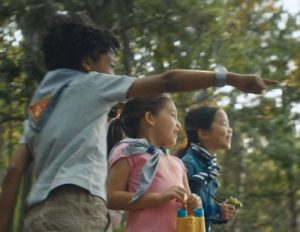 Kaplan: One of the things we learned as an organization is that when you’re dealing with Reconciliation, there’s never going to be one, accepted solution that all stakeholders are comfortable with. We have a diversity in perspectives in the Indigenous population that lives in the political territory of Canada, and perspectives differ depending on historical experiences and wherever those individuals are based. That was one thing we learned — and how to be flexible, and how to manage those expectations. And despite our own history as an organization that was deeply connected to British and Canadian colonialism, I’m proud that we were able to approach the work in a way that we felt was iterative, respectful and focused on listening.
Kaplan: One of the things we learned as an organization is that when you’re dealing with Reconciliation, there’s never going to be one, accepted solution that all stakeholders are comfortable with. We have a diversity in perspectives in the Indigenous population that lives in the political territory of Canada, and perspectives differ depending on historical experiences and wherever those individuals are based. That was one thing we learned — and how to be flexible, and how to manage those expectations. And despite our own history as an organization that was deeply connected to British and Canadian colonialism, I’m proud that we were able to approach the work in a way that we felt was iterative, respectful and focused on listening.
Of course, the whole purpose of an exercise like this is to disassociate yourself from a hierarchical, colonialist mindset that says, “This is the linear progression that must happen.” As an organization, it was helpful to continuously separate ourselves from thinking like that — from thinking that this is the project, this is the budget, these are the stakeholders, here are the project parameters. This is the kind of project thinking that nonprofits naturally fall into when dealing with a diversity of voices and opinions. You need an iterative, adjustable process that involves listening to partners and understanding perspectives different from your own, as opposed to being glued to a pre-defined project plan.
Please sign up for the MPNL newsletter, PANL Perspectives.
Saturday, November 18, 2023 in For homepage, Indigenous series, News & Events
Share: Twitter, Facebook

